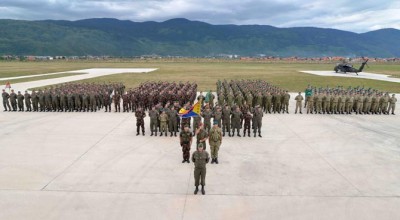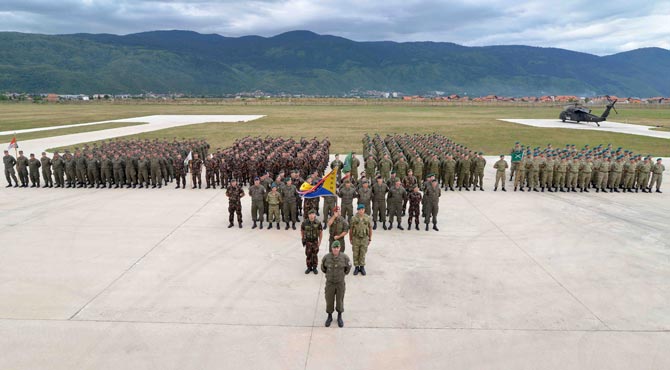EUFOR Althea in Bosnia and Herzegovina: are we continuing?

(BRUSSELS2) The 28 Foreign Ministers decided today to continue the EUFOR Althea mission in Bosnia and Herzegovina. Member States remain divided on whether or not to maintain this mission. In the absence of agreement, the continuity option was therefore approved (*).
Ready to stack
The 28 thus greet “ the continued presence of Operation Althea, focused on capacity-building and training while remaining able to contribute to the deterrence capability of the authorities of Bosnia and Herzegovina, if the situation so requires ". And the Europeans are ready to come back under the UN mandate. The EU is ready to continue at this stage an executive military role (...) to maintain a safe and secure environment, under a renewed UN mandate”.
A discussion at the UN in mid-November
The mandate of the current mission ends in mid-November. And the United Nations Security Council must decide to extend it, normally for another year. It was necessary for the Europeans to show their goodwill, even if the mission is reduced to the minimum (less than 600 men mainly provided by Austria, Turkey and Hungary) and while the security threats are no longer significant. But the 28 take great care to specify that “ this operation (is) under regular review, taking into account the situation on the ground, with a view to making progress on the conditions conducive to the realization of its mandate”.
A mission completed...
Countries are still divided. For several countries, particularly in western Europe, the mission must change its nature and abandon its executive mandate to focus on its training mission. As recalled by the number 2 of the French representation at the UN, Martin Briens, last May (and whom he should recall during the next debate). “The Security Council must take note (of) the change in the nature of EUFOR ALTHEA. (...) The Bosnian authorities have always been able to guarantee this security and do not need the European military presence for that, as the regular reports of the operation commander remind us. (...) The action of EUFOR ALTHEA, in this descending phase, must remain complementary to that of the other actors present on the ground”.
... or irreplaceable EUFOR
A point of view that the high representative of the UN in the region, the Austrian Valentin Inzko, does not share, " EUFOR continues to play a vital role in the effort to maintain safe and secure conditions and helps the Bosnian authorities to improve the management and destruction of surplus arms and ammunition. It therefore continues to be an essential factor of stability in Bosnia and Herzegovina he underlines in his latest report (published in May). " Given the deleterious trends (...), it seems essential to me that it retain its operational mandate under (...) the General Framework Agreement and continue to reassure the population, which really needs it. »
(*) As no date for the end of the operation was set in 2004, the rule of unanimity prevails to stop the operation.
